- News
- Reviews
- Bikes
- Accessories
- Accessories - misc
- Computer mounts
- Bags
- Bar ends
- Bike bags & cases
- Bottle cages
- Bottles
- Cameras
- Car racks
- Child seats
- Computers
- Glasses
- GPS units
- Helmets
- Lights - front
- Lights - rear
- Lights - sets
- Locks
- Mirrors
- Mudguards
- Racks
- Pumps & CO2 inflators
- Puncture kits
- Reflectives
- Smart watches
- Stands and racks
- Trailers
- Clothing
- Components
- Bar tape & grips
- Bottom brackets
- Brake & gear cables
- Brake & STI levers
- Brake pads & spares
- Brakes
- Cassettes & freewheels
- Chains
- Chainsets & chainrings
- Derailleurs - front
- Derailleurs - rear
- Forks
- Gear levers & shifters
- Groupsets
- Handlebars & extensions
- Headsets
- Hubs
- Inner tubes
- Pedals
- Quick releases & skewers
- Saddles
- Seatposts
- Stems
- Wheels
- Tyres
- Health, fitness and nutrition
- Tools and workshop
- Miscellaneous
- Cross country mountain bikes
- Tubeless valves
- Buyers Guides
- Features
- Forum
- Recommends
- Podcast
review
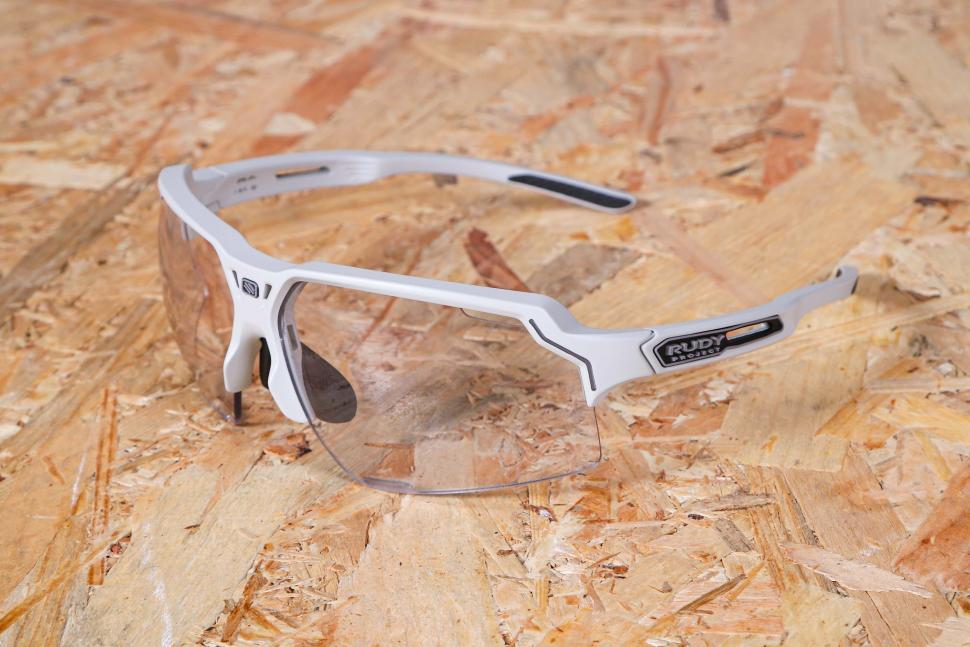 Rudy Project Deltabeat Light Grey Impactx Photochromic 2 Black
Rudy Project Deltabeat Light Grey Impactx Photochromic 2 Black£128.74
VERDICT:
Very good high-quality shades with a new bio-based frame
Easily adjustable nosepiece
Excellent optics
Eco frame material
Robust
Pressure point behind the ears
Not full coverage
Weight:
31g
Contact:
At road.cc every product is thoroughly tested for as long as it takes to get a proper insight into how well it works. Our reviewers are experienced cyclists that we trust to be objective. While we strive to ensure that opinions expressed are backed up by facts, reviews are by their nature an informed opinion, not a definitive verdict. We don't intentionally try to break anything (except locks) but we do try to look for weak points in any design. The overall score is not just an average of the other scores: it reflects both a product's function and value – with value determined by how a product compares with items of similar spec, quality, and price.
What the road.cc scores meanGood scores are more common than bad, because fortunately good products are more common than bad.
- Exceptional
- Excellent
- Very Good
- Good
- Quite good
- Average
- Not so good
- Poor
- Bad
- Appalling
The Rudy Project Deltabeats may not compete with the unobstructed viewing experience large frameless sunnies provide, but the top-quality photochromic lenses adjust to changing light conditions effectively, as well as providing protection from wind and flicked-up dirt. The sturdy feeling frame uses a bio-based polyamide, reducing the Deltabeats' carbon footprint as well as delivering good ergonomics.
The Deltabeat sunnies have a wraparound frame made from Rilsan Clear, which is a bio-based polyamide produced from castor bean oil grown in the Gujarat region of India, and then developed by Arkema.
'The beans are crushed to produce castor oil and the oil is further refined during several steps to produce the primary bio-based raw material in the polymer,' Rudy Project explains. Rudy Project has adopted this bio-based material as a sustainable alternative to Grilamid TR90, a material commonly used for sport sunnies, which it says has much of the same properties. It's certainly a strong and sturdy material that feels as though it could withstand regular use, and so it's great to see an eco option chosen here.
A photochromic lens helps to deal with varying light conditions – which are typical for most UK riding. Either it's clouds intermittently obscuring or revealing the sun, or shady forested roads giving way to wide, open – and bright – fields. With the lens automatically darkening and clearing to suit the light conditions, you can get on with your ride without squinting through glare or picking your way down an artificially darkened descent.
Although the photochromic version is more expensive at £128.74 compared with £98.68 for standard lenses, it's arguably better value as it covers you for both dark and bright rides – not to mention being more convenient than continually swapping between lenses depending on light conditions.
Rudy Project's photochromic lenses are available in four options; I had the ImpactX Photochromatic 2 Black on test, which offer a huge light transmission range of 74% to 9% – essentially, clear to really quite dark.
Even though there's less need to switch out the photochromic lenses, if you wanted to, I found it was a quick and straightforward process.
Far from the oversized styling of some shades, such as the SunGod Airas, the lens height is just 51mm and each side measures 69mm. Despite the smaller size, the lenses sit close across your face, which effectively seals out those eye-watering gusts.
To minimise misting, Rudy Project has its PowerFlow ventilation solution, which consists of a vent on the top outer edge of each lens and the inner bottom edge, as well as vents at the front of the frame, on the inside by the nosepiece and along the arms to adjust the airflow. These do a very good job at holding back the fog-up. It was only when I stopped at the top of a hill after an unpleasant effort that misting did start to appear, which is not a surprise. During actual riding I had no such issues, it's very effective.
The ErgoNose system is very good. It's an adjustable nosepiece that allows you to fine-tune the fit to one that's both comfortable and secure. While it can take a little longer than swapping in different sized nosepieces, I found I was able to dial in the fit I preferred. It bends into the shape you want and doesn't shift when you're riding.
The frame arms naturally curve inwards and while there is a reasonable amount of flexibility to them, in my experience the slim arms would still dig in slightly – which over the course of a two-hour ride could become a little uncomfortable.
Other than that, the fit and security of the glasses is great. I found they stayed put throughout sweaty outings or prolonged rain, as well as rides on rougher terrain.
Value
Priced at £128.74, the Deltabeats are pretty good value. I recently tested SunGod's Airas BF with a photochromic lens which are much more expensive at £195, and the Zero-Frame option is also high at £170. You do benefit from plenty of customisation and greater coverage from a larger lens, though.
> Buyer’s Guide: 10 of the best cycling sunglasses
That's not to say the Deltabeats are the most affordable photochromic option out there. The BZ Optics TOUR Photochromic Glasses HD Lenses offer excellent clarity and a snug fit, for £94.99, although a fair amount of the frame is in your eyeline. dhb's Vector sunnies are just £90 and consist of a frame at the top, which is amazingly unobstructive.
Conclusion
Overall, the Deltabeats are a very solid choice if you're looking for a quality photochromic lens option that offers good protection from both roadside debris and gusty winds. Its frame feels robust and even boasts eco credentials, being made from a bio-based oil. The only negative for me was that although the nosepiece provided good adjustment and was highly comfortable, I did find the arms could dig in a little on longer rides.
Verdict
Very good high-quality shades with a new bio-based frame
road.cc test report
Make and model: Rudy Project Deltabeat Light Grey Impactx Photochromic 2 Black
Size tested: 69#11-131
Tell us what the product is for and who it's aimed at. What do the manufacturers say about it? How does that compare to your own feelings about it?
Rudy Project says: "Combining Rudy Project distinctive edgy design, advanced lens technology and superior comfort in a frame built with Rilsan Clear, a high performance sustainable and bio-based polyamide developed by Arkema, Deltabeat blends optical protection and deep wraparound fit while featuring superior head grip geometry, adjustable ErgoNose system, rubber temple pads and our proprietary PowerFlow ventilation solution to minimize fogging."
Tell us some more about the technical aspects of the product?
Rudy Project lists:
Adjustable nosepiece
Total comfort fit
Vent controller
ImpactX Photochromatic Black: Light Transmission 74% to 9%
Rate the product for quality of construction:
8/10
Rate the product for performance:
8/10
Rate the product for durability:
8/10
Rate the product for weight (if applicable)
8/10
Rate the product for comfort (if applicable)
6/10
The nosepiece was easy to adjust and sits comfortably, but I found the arms cause slight pressure points behind my ears.
Rate the product for value:
6/10
Tell us how the product performed overall when used for its designed purpose
The sunglasses performed well, effectively adjusting the tint to the light conditions and protecting my eyes from debris and the wind.
Tell us what you particularly liked about the product
Excellent photochromic lens combined with an eco frame at a decent price.
Tell us what you particularly disliked about the product
I found the arms dig in slightly behind my ears.
How does the price compare to that of similar products in the market, including ones recently tested on road.cc?
It is higher than what's offered from more budget-orientated brands such as BZ Optics, but still lower than some of the more premium options out there including SunGod. It sits at about the middle of the price bracket.
Did you enjoy using the product? Yes
Would you consider buying the product? Yes
Would you recommend the product to a friend? Yes
Use this box to explain your overall score
The Deltabeats performed well at adjusting to the changing light conditions and provided effective protection from flicked up dirt and the wind. The nosepiece provided good adjustment and the robust-feeling frame comes with good eco credentials. I did find the arms could dig in a bit on longer rides, and the lens coverage isn't quite as large as some competitors, but overall I'd say they're still very good.
About the tester
Age: 24
I usually ride: Road bike My best bike is:
I've been riding for: 10-20 years I ride: Every day I would class myself as: Expert
I regularly do the following types of riding: road racing, cyclo cross, commuting, touring, club rides, sportives, general fitness riding, Gravel riding, indoor turbo and rollers, track
Anna has been hooked on bikes ever since her youthful beginnings at Hillingdon Cycle Circuit. As an avid road and track racer, she reached the heady heights of a ProCyclingStats profile before leaving for university. Having now completed an MA in Multimedia Journalism, she’s hoping to add some (more successful) results. Although her greatest wish is for the broader acceptance of wearing funky cycling socks over the top of leg warmers.
Latest Comments
- Eton Rifle 1 sec ago
The difference is that the Labour Party has actually done something about it by booting him out. If he'd been a Tory, the twat would have been...
- Jogle 1 hour 2 min ago
The Giro starts on the 9th May, so the new programme finishing on 5th June would mean that it covers the end of the Giro and then stops
- chrisonabike 1 hour 3 min ago
I feel Google needs one of Henry Beard's books for more up-to-Silver-Age colloquial source material (or even better literal translation)...
- ErnieC 1 hour 11 min ago
I would say a 10 in front of the 6 would be a more appropriate sentence.
- Dr Neal Spowage 2 hours 14 min ago
I'm disabled and a wind up workstand would be a godsend for even the most basic of maintenance tasks. These things are almost non-existent. I'd be...
- Rendel Harris 6 hours 9 min ago
A set of pedals can come in proper handy too sometimes.
- NoOneSpecial 6 hours 36 min ago
Memory lane!...
- wtjs 10 hours 7 min ago
Mercedes A-Class WU66 LLJ below went without MOT for 8 1/2 months from 19.10.23 to 2.7.24. I just happen to be doing some following up and evidence...
- HarrogateSpa 11 hours 5 min ago
I think you've got your Yateses mixed up.








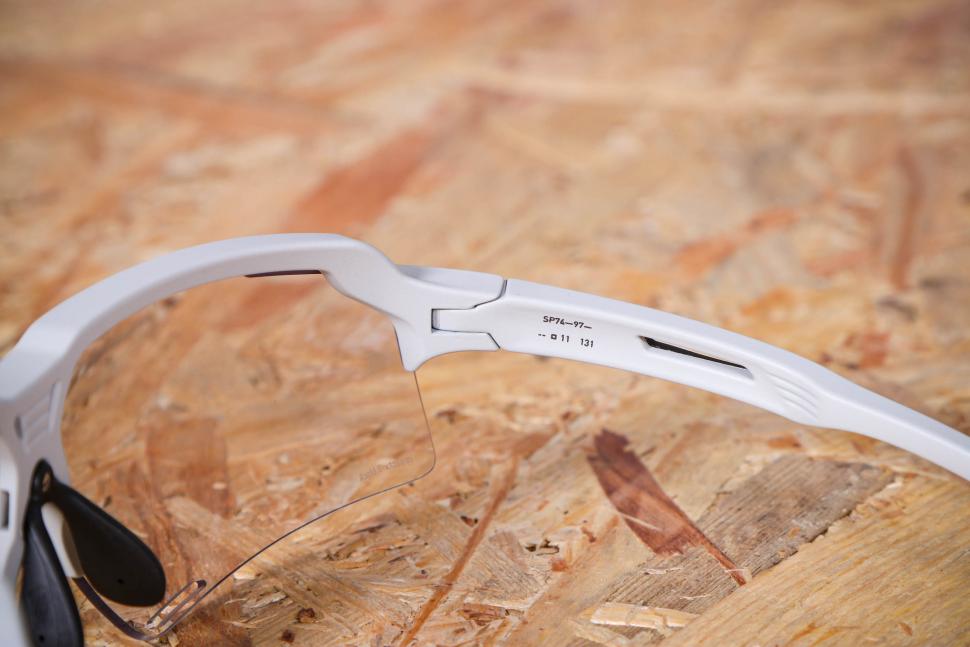
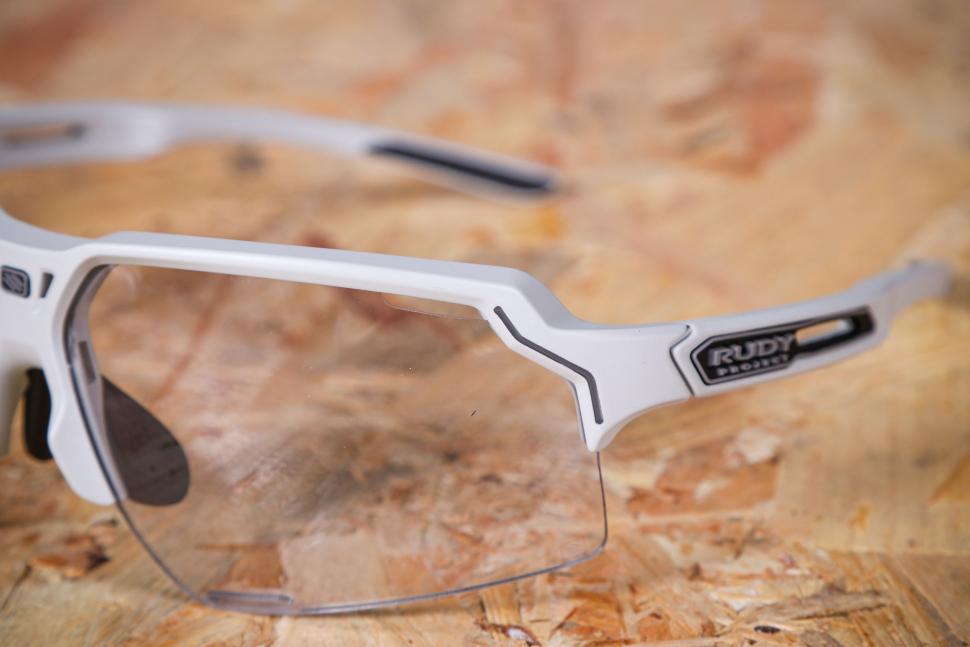

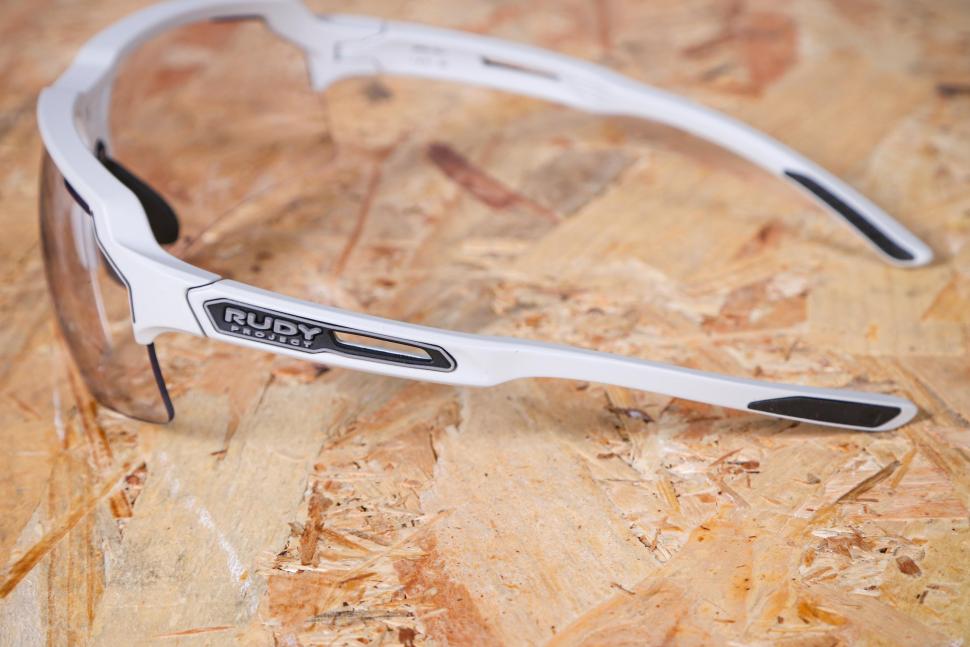

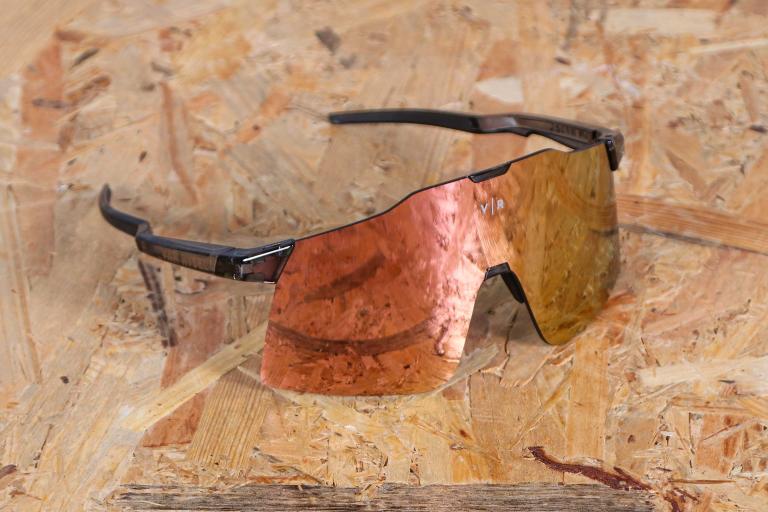
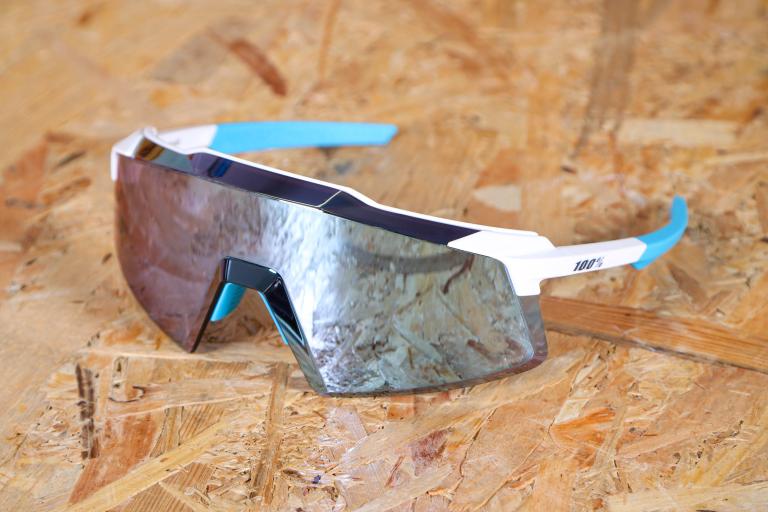
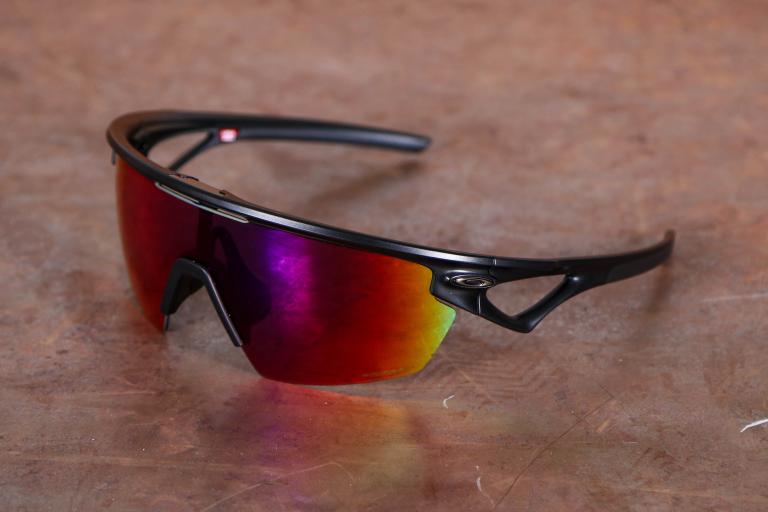
Add new comment
3 comments
Any chance of reviews of sunnies for prescription spectacle wearers?
It doesn't mention it in the review but these are compatible with the manufacturer's "Optical Dock" system, an insert that clips in behind the lens that you can have glazed to your own prescription. Must say I'm quite tempted as I'm currently using the prescription insert from my old Oakleys bluetacked to the nosepiece of some new POCs!
Indeed, and it says something that the review completely overlooks this feature.
I'm aware that Rudy Project does a clip in system, and also prescription main lenses. I'd love a proper write up about the pros and cons of both solutions (some "lived experience" as opposed to just the manufacturer's list of the benefits for each), together with an overview of the options out there.